Our mission at the American Institutes for Research® (AIR®) is to generate and use rigorous evidence that contributes to a better, more equitable world. In partnership with Ascendium, we are embarking on an initiative that promises to benefit the field of Higher Education in Prison through the release of open resources and opportunities for shared learning.
We have issued a Request for Proposals that invites Higher Education in Prison (HEP) programs to submit a proposal that addresses high-leverage technical assistance needs in the field. Selected grantees…
This research paper examines the development and administration of Hudson Link for Higher Education in Prison, an in-prison college program run and staffed primarily by its own formerly incarcerated graduates. This paper also explores the impact of lived experience on managing and teaching in the program, as well as strategies for academic partners looking to best support interventions led by those who are closest to the problem and, in turn, closest to the solution.
This research paper examines the development and administration of Hudson Link for Higher Education in Prison, an in-prison college program run and staffed primarily by its own formerly incarcerated graduates. This paper also explores the impact of lived experience on managing and teaching in the program, as well as strategies for academic partners looking to best support interventions led by those who are closest to the problem and, in turn, closest to the solution.
This research paper examines the development and administration of Hudson Link for Higher Education in Prison, an in-prison college program run and staffed primarily by its own formerly incarcerated graduates. This paper also explores the impact of lived experience on managing and teaching in the program, as well as strategies for academic partners looking to best support interventions led by those who are closest to the problem and, in turn, closest to the solution.
The State University of New York's (SUNY) annual newsletter that details SUNY HEP programs and degrees, an interview with Chancellor John King Jr., graduation highlights, and alumni and faculty highlights.
The State University of New York's (SUNY) annual newsletter that details SUNY HEP programs and degrees, an interview with Chancellor John King Jr., graduation highlights, and alumni and faculty highlights.
"Perspectives on Higher Education in Prison," a series of essays from the State University of New York (SUNY), showcases the stories of SUNY students and others connected to higher education in prison—stories that inspire, challenge, and enrich their communities. By sharing these lived experiences, SUNY aims to illuminate the broader significance of prison education programs and garner the support needed to expand SUNY's exceptional offerings, ensuring equitable access to higher education for all incarcerated individuals.
"Perspectives on Higher Education in Prison," a series of essays from the State University of New York (SUNY), showcases the stories of SUNY students and others connected to higher education in prison—stories that inspire, challenge, and enrich their communities. By sharing these lived experiences, SUNY aims to illuminate the broader significance of prison education programs and garner the support needed to expand SUNY's exceptional offerings, ensuring equitable access to higher education for all incarcerated individuals.
"Perspectives on Higher Education in Prison," a series of essays from the State University of New York (SUNY), showcases the stories of SUNY students and others connected to higher education in prison—stories that inspire, challenge, and enrich their communities. By sharing these lived experiences, SUNY aims to illuminate the broader significance of prison education programs and garner the support needed to expand SUNY's exceptional offerings, ensuring equitable access to higher education for all incarcerated individuals.
This user-friendly Language Matters Gide builds on Job for the Future's 40 years of experience in the education and workforce ecosystem. The guide offers suggest ions on how to write and speak about people in ways that promote equity, dignity, and a focus on each individual's potential—rather than labeling them based on the systemic barriers they face.
Topics covered include skills and socioeconomic status, race and ethnicity, criminal justice, and more. Because language is fluid, the recommendations will evolve.



